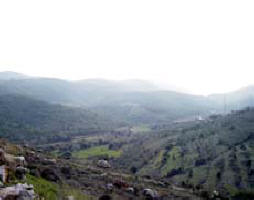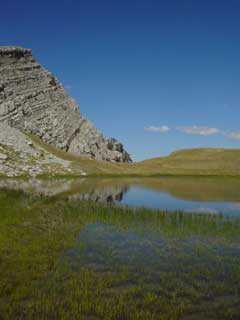 Dealing with Water Scarcity in MENA
Dealing with Water Scarcity in MENA
Where water scarcity makes the most impact is in food production. Eighty-five percent of the water in the MENA region is used for irrigation and that is potentially the main area from which the growing urban demand can be met. While there is some potential in adopting more efficient irrigation practices, there's no getting around the need to restrict the amounts of water used for agriculture in many parts of the region. That is institutionally, and politically, very difficult.
With less groundwater available for agriculture, the region is going to be much more dependent on trade for food products. While this scenario is acceptable, we should remember that as the region's dependence on trade gets higher and higher, there are economic risks, and volatility in a region like the Middle East is not to be taken for granted. The region imports about 50% of its grain already, and we've seen recent sudden increases in the prices of grain have a big impact on consumers in the region. Clearly, the volatility in food prices is going to be felt in the region and may result in political consequences.
The World Bank has a number of innovative projects to help countries manage water resource challenges. The key focus at present is to encourage countries to reduce consumption to the level of average precipitation, and that means future levels of precipitation, not just the current levels.
The Bank is helping governments in several countries across the region invest in modernizing irrigation, in better water supply, in improving water quality through wastewater collection and treatment and in improving groundwater management as well as helping with water policies and institutions. The Bank is increasingly linking physical investments with improvements in water planning. To do that, the Bank is promoting systems to assist countries with "water accounting", in the same way they would do financial accounting. Countries need to look in the bank to see if the resources will be available. To achieve this, the Bank is advancing the use of remote sensing technology to map water use in basins over different periods of time. By linking this data to existing models and data from existing ground-based monitoring systems, people can more accurately predict what the localized responses might be to future climate shocks, estimate levels of potential runoff, and what would be the safe yield from aquifers.
In addition to working at the level of individual countries and river basins, the Bank is also helping countries work together and share information, experience and knowledge. One mechanism to do this has been the Arab Water Council, which the Bank supports. The Council's membership includes all of the region's water ministers and provides a venue where they can share their experience, knowledge and data, and coordinate actions as a region. The Council is now working on developing a common dataset for the entire Arab World, which will track, on a consistent basis, regularly updated, how much water is available, and where and how it is used.
Most recently, the Bank provided financing to establish the Arab Water Academy, which will be launched in summer 2008 in Dubai. The Academy will bring leaders from the water sector, and outside the sector too, from around the Arab region to learn international best practices and provide a forum to discuss how to effect change within their own circumstances. In essence a mid-career learning program, the Academy has great potential to effect change in the region.
Planning for the future
The lesson from history is that people adapt when faced with water scarcity, and people in MENA will find a way to live with less water. The question remains whether this accommodation happens in a planned way that lessens the impact on the poor, or if it happens in a jerky, crisis to crisis kind of way. There is hope that countries in the region will take proactive steps, and there are many things they can do.
| Contact information | n/a |
|---|---|
| News type | Inbrief |
| File link |
http://web.worldbank.org/WBSITE/EXTERNAL/NEWS/0,,contentMDK:21872903~pagePK:34370~piPK:34424~theSitePK:4607,00.html |
| Source of information | World Bank in the MENA region |
| Keyword(s) | water scarcity, groundwater, irrigation |
| Subject(s) | AGRICULTURE , DRINKING WATER AND SANITATION : COMMON PROCESSES OF PURIFICATION AND TREATMENT , FINANCE-ECONOMY , HYDRAULICS - HYDROLOGY , POLICY-WATER POLICY AND WATER MANAGEMENT , RISKS AND CLIMATOLOGY , WATER DEMAND , WATER QUALITY |
| Relation | http://www.semide.net/topics/WaterScarcity |
| Geographical coverage | MENA |
| News date | 19/08/2008 |
| Working language(s) | ENGLISH |
 you are not logged in
you are not logged in





